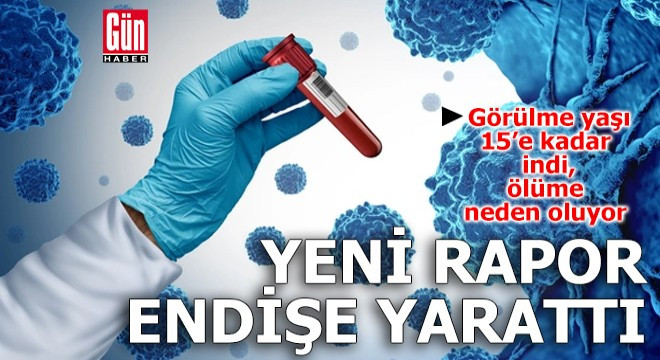A new report has raised concerns: The age of onset has dropped to 15, leading to death

The American Cancer Society has released its cancer trends report for 2025. While there has been a significant decline in cancer-related deaths in recent years, there are troubling increases in certain types of cancer.
In the report, the American Cancer Society (ACS) notes a 34% reduction in cancer-related mortality between 1991 and 2022, attributing the improvement to early detection, reduced smoking rates, and advances in treatment methods. However, experts highlight that some cancers are on the rise among young people, and health inequalities between communities persist.
Cancer mortality among young people reaching alarming levels
The report warns that cancer cases among young people continue to rise, and this trend could deepen. Especially among adolescents aged 15-19, the frequency of cancer is increasing by 0.7% per year.
Cancer continues to be one of the leading causes of death among children and adolescents, with the most common types being leukemia, brain cancer, and lymphoma. In 2025, it is predicted that 9,550 children under the age of 14 and 5,140 adolescents between the ages of 15-19 will be diagnosed with cancer, resulting in 1,050 children and 600 adolescents dying from the disease.
Dr. Paul Oberstein from NYU Langone Perlmutter Cancer Center notes that gastrointestinal cancers such as pancreatic and colon cancer are becoming more common in young adults. He suggests that diet, environmental factors, and exposure to microplastics may be contributing to this rise, although no conclusive explanation has been found yet.
Cervical cancer: still a major threat despite being preventable
Another significant issue highlighted in the report is the prevalence of cervical cancer. Despite being one of the rare cancers that can be detected and prevented, cervical cancer still puts thousands of women at risk.
ACS reports that cervical cancer cases decreased from the mid-1970s to the 2000s due to the spread of screening programs, but the rate of decline has stagnated in recent years.
Dr. Jessica Shepherd predicts that in 2025, approximately 13,000 women will be diagnosed with cervical cancer, and 4,000 women will die from the disease. Cervical cancer, primarily caused by the human papillomavirus (HPV), can largely be prevented through proper screening and early diagnosis.
Gastrointestinal cancers worsening
Finally, the report points to an alarming rise in gastrointestinal (GI) cancers, particularly pancreatic, liver, and colorectal cancers. ACS reports that between 2012 and 2021, colorectal cancer cases in individuals under 50 increased by 2.4% per year.
Experts state that despite advances in early detection and treatment, pancreatic and stomach cancers generally lead to poor outcomes. Early detection of colorectal cancer can significantly reduce mortality, and early detection of stomach and pancreatic cancers can make a big difference.
Progress in the fight against cancer, but unresolved problems persist
The American Cancer Society's report shows that there has been progress in some areas of cancer treatment, but with increasing risks among young people and certain communities, and continuing health inequalities, much work remains to be done. Early detection, screening programs, and access to healthcare will continue to play a critical role in addressing these serious health issues.


